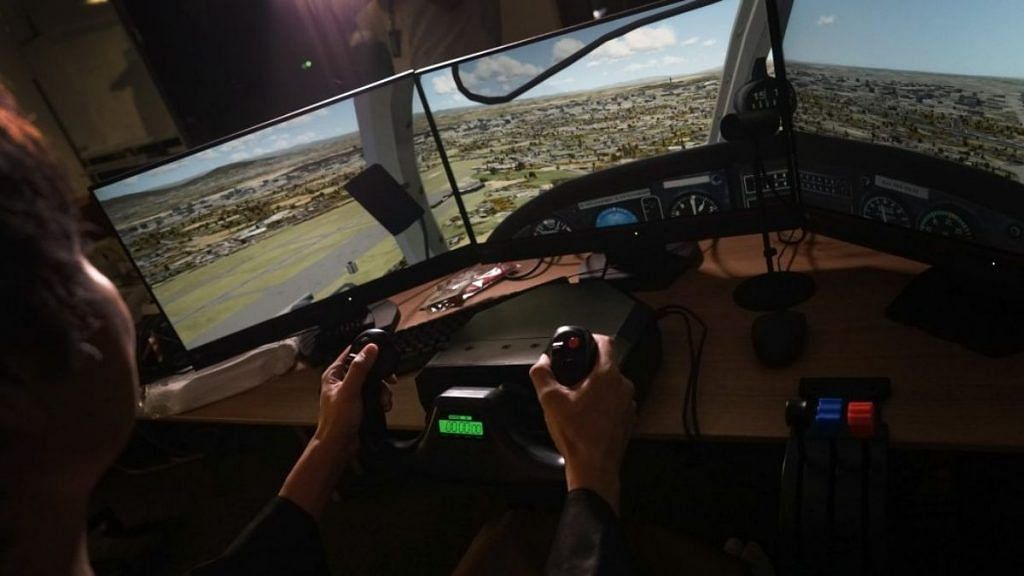London: Is it a bird? Is it a plane? Or is it a flying car coming in to land at the world’s first-ever airport built specifically for electric flying vehicles?
It might sound like something out of a science-fiction film, but this airport is actually being readied for November 2021 near the UK city of Coventry.
The Air-One facility will be open for just one month, and is a collaboration between government agencies, private-sector businesses and the aviation industry. It has been developed by Urban Air Port, with the involvement of the Urban Air Mobility Division of Hyundai Motor Group and Coventry City Council.
More than a flight of fancy
The pop-up airport is being built as a proof of concept of a zero-emissions hub for future modes of travel. Electric vertical take-off and landing (eVTOL) vehicles are being suggested as a low-carbon way to ease congestion as people travel between urban centres.
“Cars need roads. Trains need rails. Planes need airports. eVTOLs will need Urban Air Ports,” said Ricky Sandhu, founder and executive chairman of Urban Air Port. “Flying cars used to be a futuristic flight of fancy. Air-One will bring clean urban air transport to the masses and unleash a new airborne world of zero emission mobility.”
“The Airport Shuttle and Air Taxi markets are viable,” according to a NASA Technical Report from November 2018, which estimated a “significant total available market value in the US of $500 billion”. Although the report also pointed out there may be “significant legal and regulatory, weather, certification, public perception, and infrastructure constraints” facing eVTOLs.
There are no flying cars or passenger-carrying drones operating in the UK currently. Still, the facility is said to be attracting interest from logistics companies in particular. The use of airborne drones to deliver parcels has been dismissed almost as often as it has been discussed, due to the challenges of their operation in densely populated areas. But the technology could prove useful as a way of transporting goods between transport hubs, and large cargo drones, manufactured by Malloy Aeronautics, will be featured at the site.
Cheaper than a chopper
Ride-share business Uber and Hyundai announced they were working together to develop an Uber Air Taxi service at the January 2020 Consumer Electronics Show in Las Vegas. They also unveiled a full-size model of one of the planned aircraft. Called the S-A1, it will be 100% electric, take off vertically, then transition to wing-borne lift; it can carry four people at speeds of up to 290 kilometres per hour at an altitude of between 300 and 600 metres.
According to a report in the Times newspaper, eVTOL aircraft are “quieter, lighter, cheaper and more environmentally friendly than helicopters”. The idea is that such vehicles could make it possible for people to travel short distances across urban sprawls and take the pressure off existing, congested transport links.
A statement from Hyundai makes a similar comparison, saying: “The physical footprint of an Urban Air Port is 60% smaller than a traditional heliport (the most comparable existing infrastructure). Using innovative construction, the sites can be installed in a matter of days, emit net-zero carbon emissions and can be operated completely off-grid.”
The UK government’s Future Flight Challenge awarded Urban Air Port a $1.64 million grant, funded by $171 million from the Industrial Strategy Challenge Fund, which is expected to be matched by up to $239 million from industry.
Coventry City councillor Jim O’Boyle praised the public-private cooperation aspect of the announcement: “We are already a city that is helping to shape the future of electric transport and this is yet another ground-breaking project that puts Coventry at the forefront of new technologies,” he said. “It highlights how the council is working alongside a range of organizations to help shape a better, greener future.”
This article was originally published in the World Economic Forum.
Also read: Get over airplanes, flying taxis are the future
